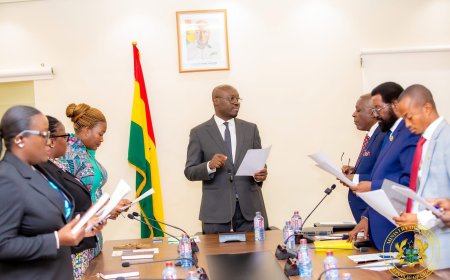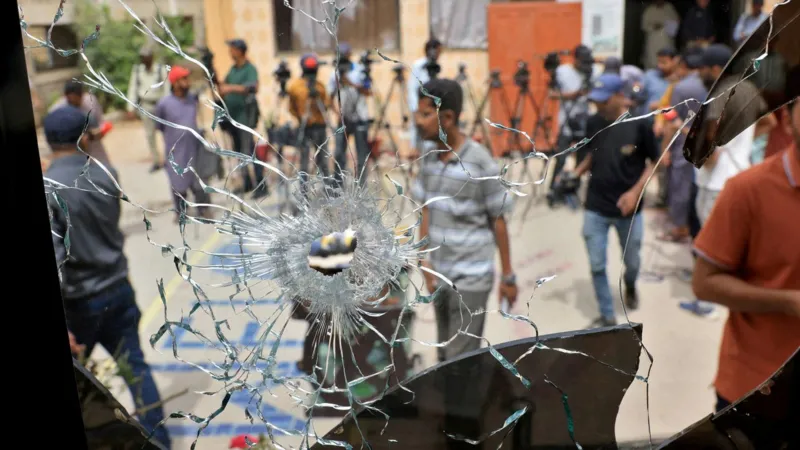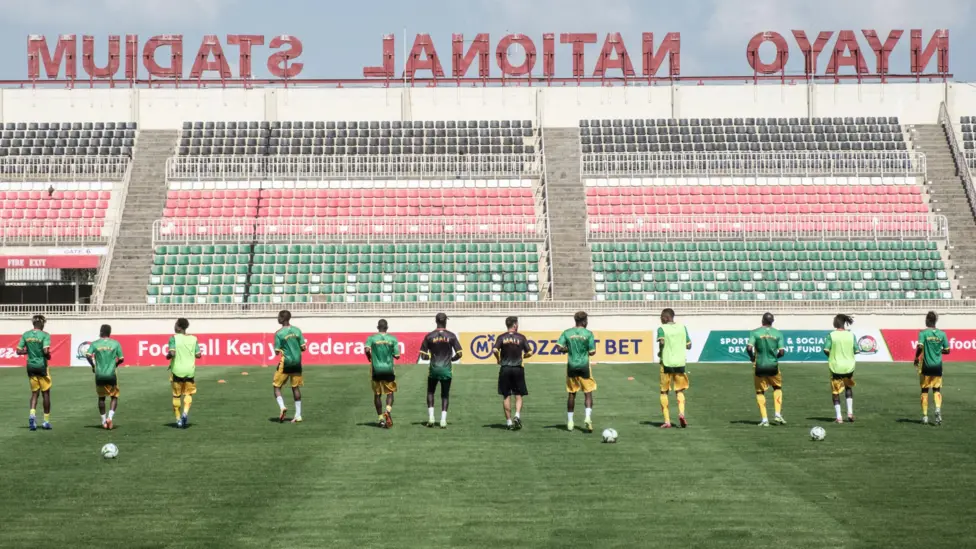Burkina Faso Joins Mexico, Russia, Venezuela, Myanmar, Israel, Iran, and North Korea as US Issues New High Alert Travel Warning

As global instability surges, the United States has reissued or updated high alert travel warnings for Burkina Faso, Mexico, Russia, Venezuela, Myanmar, Israel, Iran, and North Korea, citing escalating threats ranging from terrorism and armed conflict to wrongful detentions and state-imposed conscription.
With the addition of Burkina Faso, this growing list reflects the U.S. government’s heightened concerns about traveler safety and its limited ability to provide emergency assistance in these high-risk regions. Here’s what you need to know about why these countries now share the highest travel warning level.
In an escalating wave of travel advisories that reflect deepening global instability, the U.S. Department of State has issued new and reissued high alert travel warnings for eight countries—Burkina Faso, Russia, Myanmar, Venezuela, Mexico, Iran, Israel, and North Korea—citing threats such as terrorism, civil unrest, wrongful detention, and armed conflict. These updated warnings are part of the State Department’s routine assessments but signal intensifying security concerns in several regions that are increasingly dangerous for U.S. citizens.
Burkina Faso: Terrorism, Kidnapping, Crime, and State of Emergency
The West African nation of Burkina Faso has now been added to the U.S. Department of State’s most severe travel advisory level: Level 4 – Do Not Travel. The update reflects heightened threats from terrorist activity, kidnapping, and violent crime, alongside persistent insecurity and instability.
Key Details:
- Terrorists may strike anywhere, including hotels, restaurants, schools, places of worship, and government facilities.
- Kidnapping remains rampant, even in the capital Ouagadougou, with elevated danger in the Sahel and East regions.
- A state of emergency is in effect across multiple regions, including:
- Sahel and East regions
- Kossi and Sourou (Boucle de Mouhoun)
- Kenedougou (Hauts Bassins)
- Loroum (North)
- Koulpelogo (Center-East)
- U.S. Embassy personnel are barred from traveling outside the capital, and emergency assistance is severely restricted across most of the country.
- Even in the capital, U.S. staff are discouraged from nighttime travel in specific neighborhoods like Balkiui and Rayongo.
This advisory aligns Burkina Faso with other nations under severe U.S. warnings due to active threats and operational challenges for consular support.
Russia: Ongoing War, Detentions, and No Consular Safety Net
Russia remains under a Level 4 – Do Not Travel advisory amid its ongoing full-scale invasion of Ukraine. The U.S. warns of increasing danger to U.S. citizens, especially those with dual U.S.-Russian citizenship, who may face harassment, arbitrary detention, or even forced conscription into the Russian military.
Key Concerns:
- Wrongful detentions of U.S. citizens have been documented.
- Military conscription has been extended even to dual nationals.
- Drone attacks and explosions have been reported in Moscow, St. Petersburg, and Kazan.
- All U.S. consulates in Russia are closed; assistance from the U.S. Embassy is limited, especially outside Moscow.
- U.S. financial systems are nonfunctional, including credit/debit cards and electronic fund transfers.
Travel to Russia is deemed extremely dangerous, and U.S. citizens currently in the country are urged to leave immediately.
Myanmar (Burma): Armed Conflict and Mandatory Conscription
Myanmar, still reeling from its 2021 military coup, is now under a revised Level 4 – Do Not Travel advisory, highlighting armed conflict, civil unrest, wrongful detentions, and the implementation of a military conscription law in 2024.
Significant Risks:
- Ongoing conflict between the military and ethnic armed groups in Chin, Kachin, Shan, Rakhine, and Sagaing.
- Improvised explosive devices (IEDs) frequently detonate even in the capital, Rangoon.
- Land mines and unexploded ordnance (UXO) are widespread in border regions.
- Dual U.S.-Burmese citizens face risk of forced conscription and may not be permitted to leave.
- Healthcare access is limited, with shortages of medical staff and supplies.
The reimplementation of the People’s Military Service Law poses severe consequences for citizens and dual nationals, marking Myanmar as a top-risk zone for Americans.
Venezuela: Wrongful Detention and Total Absence of US Consular Presence
The U.S. continues to advise against all travel to Venezuela, emphasizing the high risk of wrongful detentions, crime, and the total absence of U.S. consular services since 2019.
Highlights:
- The U.S. Embassy in Caracas is closed, and no U.S. consular staff are stationed in the country.
- Violent crime (armed robbery, carjacking, and kidnapping) is widespread.
- Security forces have detained Americans for extended periods—up to five years—without due process.
- Colombian terrorist groups operate near the borders with Colombia, Brazil, and Guyana.
- Severe shortages of fuel, electricity, water, and medicine plague much of the country.
U.S. citizens in Venezuela are advised to leave as soon as possible, given the government’s inability to provide any emergency services
Mexico: State-by-State Crime and Travel Restrictions
While Mexico remains a popular travel destination, the U.S. has reissued its country summary to reflect persistent violent crime and new travel restrictions for U.S. government personnel, particularly in Chiapas and Durango.
Notable Measures:
- Homicide, kidnapping, and carjackings are common in several states.
- U.S. officials are:
- Prohibited from intercity travel after dark.
- Required to use dispatched or app-based vehicles.
- Not allowed to travel to certain regions even during the day.
- Daytime travel exceptions are limited to select highways such as Highway 15D and 85D.
Although Mexico is not under a blanket Level 4 warning, the wide-ranging restrictions underscore its inclusion in this high-alert group of nations.
Iran: Wrongful Detention, Terrorism, and Reproductive Health Warnings
Iran continues to top the State Department’s “Do Not Travel” list due to threats of terrorism, arbitrary detention, and recently emphasized risks related to assisted reproductive technology (ART) and surrogacy tourism.
Key Dangers:
- Dual U.S.-Iranian citizens are especially at risk of arrest and denial of consular access.
- Espionage charges have been leveled against U.S. citizens without cause.
- Violent extremist groups, including ISIS, have claimed attacks within Iran.
- New warnings emphasize unregulated surrogacy services falsely marketed to U.S. citizens.
- U.S. consular services are non-existent; Switzerland acts as the protecting power, with limited influence.
Any travel to Iran is strongly discouraged, especially for dual nationals, journalists, and business travelers.
Israel: Escalating Border Conflict and Terror Threats
The updated U.S. travel warning for Israel reflects the complex and rapidly evolving security environment, especially amid ongoing military activity near Lebanon and Syria and continued violence in the West Bank.
Risk Zones:
- Gaza Strip: Complete Level 4 – Do Not Travel.
- Northern Israel (within 4 km of Lebanese/Syrian borders): Do Not Travel.
- West Bank: Reconsider Travel.
- Israel overall: Reconsider Travel due to terrorism and unrest.
Violent attacks, bombings, and civil unrest can occur without warning in major cities, including Tel Aviv, Jerusalem, and Haifa. The U.S. warns that regional tensions could prompt sudden flight cancellations.
North Korea: Travel Ban and Risk of Long-Term Detention
North Korea (DPRK) remains one of the most tightly restricted destinations for U.S. citizens, with all U.S. passports invalid for travel to or through the country unless specially authorized.
Key Warnings:
- U.S. citizens face a high risk of arrest and long-term detention.
- Sweden serves as the protecting power, but even Swedish officials are frequently denied access to U.S. detainees.
- Special validations for travel are only issued in extraordinary cases.
- The threat of wrongful detention remains acute, especially for journalists and humanitarian workers.
The U.S. has issued a new high alert travel warning for Burkina Faso, joining Mexico, Russia, Venezuela, Myanmar, Israel, Iran, and North Korea due to escalating threats like terrorism, armed conflict, and wrongful detentions. This move reflects growing global instability and limited U.S. consular support in these regions.
What This Means for Travelers and Global Policy
The alignment of these eight countries—Burkina Faso, Russia, Myanmar, Venezuela, Mexico, Iran, Israel, and North Korea—under the umbrella of high-alert travel advisories illustrates the evolving risks U.S. citizens face abroad. From terrorist attacks and violent crime to state-sanctioned detentions and military conscription, the landscape for international travel is more precarious than ever.
These warnings serve not only as alerts for tourists and business travelers but also as diplomatic signals about U.S. concerns over governance, civil liberties, and regional conflict in each of the listed countries.
The United States’ decision to update and reissue high-alert travel warnings for a wide range of nations demonstrates the growing instability affecting international mobility. Whether it’s the terrorism in Burkina Faso, civil unrest in Myanmar, state oppression in Iran and Russia, or the total diplomatic shutdown in Venezuela, the message is clear: U.S. citizens must reconsider their travel choices carefully and stay informed through official State Department resources.
Source: travelandtourworld.com

























































